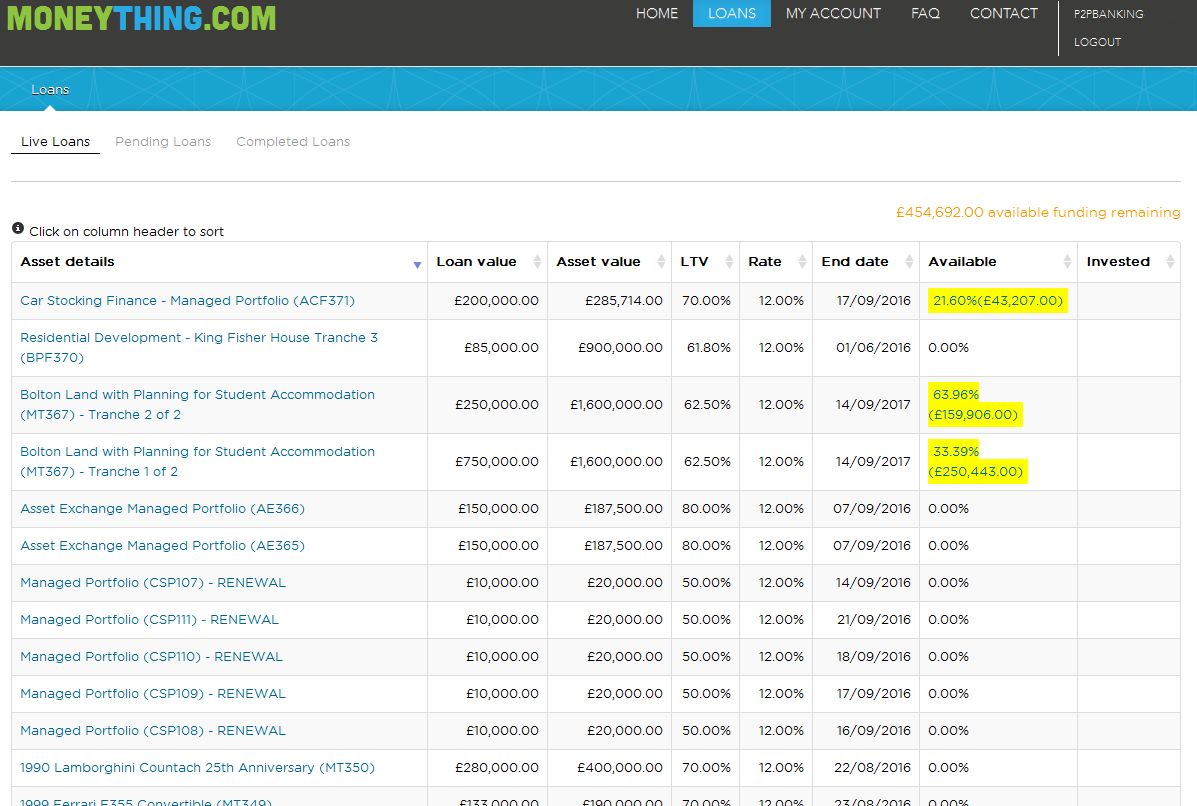![]() This morning british p2p lending platform Moneything announced that it will wind-down operations citing difficulties to compete in current market conditions. The platform facilitated 92.3 million GBP in loans since launch in 2015. 20.3 million GBP of the loans are still outstanding.
This morning british p2p lending platform Moneything announced that it will wind-down operations citing difficulties to compete in current market conditions. The platform facilitated 92.3 million GBP in loans since launch in 2015. 20.3 million GBP of the loans are still outstanding.
The full announcement sent to investors reads:
We have taken the decision to place MoneyThing into orderly wind-down and we are no longer taking any new investments or new customers.
We have found it is increasingly difficult to compete in the current market conditions and we expect there is a tougher economic environment to come.
During wind-down the business will continue to be managed and administered by the existing directors and our aim will be to minimise any disruption to our customers and ensure the safe return of funds.
We have provided detailed information on the platform on why we have taken this decision and how it affects our lender customers. Please log in to view.
We would like to thank all of our lenders for their support over the past few years. We made a commitment to lenders to provide a service and we would like to reassure lenders that that commitment will continue until the wind-down has been completed.
We have not been able to make MoneyThing a success. We will however aim to exit the market quietly with minimum disruption to our customers and the industry as a whole.
Please contact us at support@moneything.com if you have any questions or comments.
Moneything further states
Over the past few years there have been significant changes in the lending markets in the UK. The huge influx of institutional capital into the market has caused a reduction in lending rates, which is good for borrowers, but not for lenders.
The current economic uncertainty and likely future uncertainty means that there are less potential borrowers committing to projects and growth in borrowing is slowing. This means there is greater competition for borrowers and this places increased pressure on lenders to further reduce rates and perhaps to relax risk criteria or accept lower margins.
More recently the collapse of Lendy and then Funding Secure has had a big impact on lender confidence. Having spoken with a number of our lenders in recent weeks, it is clear that while the vast majority remain confident in MoneyThing as a platform, most also expect to reduce their investments across P2P or to continue to lend at a much lower level.
As a small, self-select P2P platform entirely funded by retail money, we cannot be certain that we can fund new loans with the current low level of lender confidence. As a result, it has become increasingly difficult for us to compete and we expect those market conditions to continue.
As such we have taken the decision to wind-down.
Moneything will continue to manage the existing loan book and aims to wind down the existing loan-book within 12 months.


